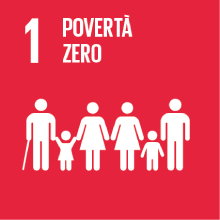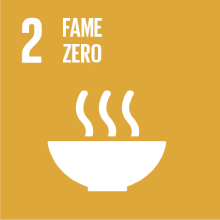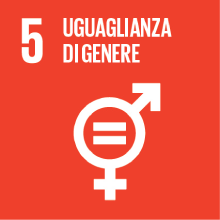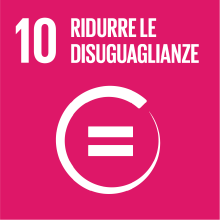GLOBAL SOCIAL MOVEMENTS
- Anno accademico
- 2019/2020 Programmi anni precedenti
- Titolo corso in inglese
- GLOBAL SOCIAL MOVEMENTS
- Codice insegnamento
- FM0434 (AF:302526 AR:168493)
- Lingua di insegnamento
- Inglese
- Modalità
- Crediti formativi universitari
- 6
- Livello laurea
- Laurea magistrale (DM270)
- Settore scientifico disciplinare
- SPS/07
- Periodo
- II Semestre
- Anno corso
- 1
- Spazio Moodle
- Link allo spazio del corso
Inquadramento dell'insegnamento nel percorso del corso di studio
Risultati di apprendimento attesi
1) at the end of the course students will be able to address advanced questions regarding the field of global studies and social movements theory and history, with a focus on social movements of global relevance from the 1960s to the present;
2) at the end of the course students will have acquired the basic methodological tools for the study of social movements and the interaction between social movements and international politics, as well as the instruments to organize one’s own work (including the selection of an appropriate bibliography);
3) at the end of the course students will have acquired the capacity to identify problems and analyze the relationship between social movements and institutions (national and international), by using appropriately different sources of information and documents;
4) at the end of the course, students will have developed the ability to work in teams and in multicultural environments and to present their own works appropriately in both written and oral form;
5) at the end of the course students will have acquired the skills necessary to continue to undertake further studies in the social sciences with a high degree of autonomy.
Prerequisiti
Contenuti
This course takes a socio-historical approach in order to highlight the deep and multifaceted interactions between the challenges from “anti-systemic social movements” and responses of national and international institutions in the US-led world capitalist system from the 1960s to the present. Through readings, videos, and lecture/discussions (including guest lectures) will introduce students to core concepts and new research from the field of social movement theory and history, drawing on inter-disciplinary readings from history, political science and sociology.
A brief outline of the course’s program follows:
1. Intro: what do we study when we study “global social movements”?
2. Anticolonial movements, 1960s-1980s
3. Anticolonial movements, 1960s-1980s
4. The student movement and the “global 1968”
5. The student movement and the “global 1968”
6. The Feminist movement (Prof.. Gusmano)
7. Gay and lesbian liberation movements, 1960s-1980s (Prof. Gusmano)
8. Labor movements, 1960s-1980s
9. Political ecology 1960s-1980s
10. The “neoliberal counter-revolution”, 1979-1990s
11. Post-1990s: Queer and intersectional movements (Prof. Gusmano)
12. Post-1990s: “Global justice movements” from Seattle to Occupy Wall Street
13. Post-1990s: The “Arab uprisings” (Guest lecture with Prof. Massimiliano Trentin and Prof. Francesco Saverio Leopardi)
14. Post 1990s: Fridays For Future and the ecological transition movement
15. Post-1990s: Domestic workers' movements
The course avails itself of a special seminar, held by Prof. Beatrice Gusmano, entitled "How to write and present a grounded paper".
A detailed calendar of regular classes and seminar meetings is in the course's moodle materials (https://moodle.unive.it/course/view.php?id=3586 ).
Testi di riferimento
For students who attend both the regular classes and the seminars, the reading material is as follows:
- A list of readings specific to each class, available in the moodle materials of the course (https://moodle.unive.it/course/view.php?id=3586 ), under the heading "mandatory readings". The readings are also available in the moodle materials of the course. Readings should be done before each class.
- All the articles and volumes that are necessary for the writing of the seminar's final paper.
For students who attend the regular classes but not the seminars, the reading materials are as follows:
- A list of readings specific to each class, available in the moodle materials of the course (https://moodle.unive.it/course/view.php?id=3586 ), under the heading "mandatory readings". The readings are also available in the moodle materials of the course. Readings should be done before each class.
- A monograph of choice. The list - only the list - of monographs is available in the moodle materials of the course (https://moodle.unive.it/course/view.php?id=3586 ).
For students who do not attend the regular classes but attend the seminars, the reading materials are as follows:
- A list of readings specific to each class, available in the moodle materials of the course (https://moodle.unive.it/course/view.php?id=3586 ), under the heading "mandatory readings". The readings are also available in the moodle materials of the course.
- A list of readings specific to each class, available in the moodle materials of the course (https://moodle.unive.it/course/view.php?id=3586 ), under the heading "suggested readings". The readings are also available in the moodle materials of the course.
- All the articles and volumes that are necessary for the writing of the seminar's final paper.
For students who do not attend either the regular classes or the seminar:
- A list of readings specific to each class, available in the moodle materials of the course (https://moodle.unive.it/course/view.php?id=3586 ), under the heading "mandatory readings". The readings are also available in the moodle materials of the course.
- A list of readings specific to each class, available in the moodle materials of the course (https://moodle.unive.it/course/view.php?id=3586 ), under the heading "suggested readings". The readings are also available in the moodle materials of the course.
- A monograph of choice. The list - only the list - of monographs is available in the moodle materials of the course (https://moodle.unive.it/course/view.php?id=3586 ).
Modalità di verifica dell'apprendimento
The exam has different characteristics depending on each student's "attendance" record. The social distancing measures connected to the "coronavirus emergency" require some changes to our original plans. While "attendance" of the seminars is determined by having written the final paper, it is left to each student to decide whether they "attended" the classes or not: if you feel confident that you have followed the lectures both in presence and by remote, plus the forums and the videoconferences, you should think of yourselves as "attending" students (frequentanti). If you do not feel so confident about having followed the course as above, you may prefer to take a closer look at the "suggested" readings and do the exam as "non-attending" students (non frequentanti).
For students who have taken part in the seminar's research groups and have "attended" the classes (in presence at first, and then thorugh the careful listening/watching/reading of the "online classes"), the exam is as follows:
1. A final research paper of some 3500 words - on a social movement of choice. The paper should be prepared by groups of up to five students and should follow the style guidelines and other instructions communicated at the seminar. It has to be presented by the group at the seminar and revised after the presentation. Each member of the group has to turn in his/her copy of the paper by email to Prof. Basosi and Prof. Gusmano one week before the date of the oral exam. The final paper accounts for 50% of the final grade.
2. An oral exam of the duration of around 20 minutes to be held in video-conference, consisting of two main questions (one on the final paper and one on the "mandatory" readings). The oral exam accounts for 50% of the final grade. Technical details on the videoconference will be communicated before the exam.
For students who have only "attended" the classes (in presence at first, and then thorugh the careful listening/watching/reading of the "online classes"), the exam is as follows:
1. An oral exam of the duration of around 20 minutes to be held in video-conference, consisting of three main questions (two on the "mandatory" readings and one on the chosen monograph). Technical details on the videoconference will be communicated before the exam.
For students who have taken part in the seminar's research groups only, the exam is as follows:
1. A final research paper of some 3500 characters - on a social movement of choice. The paper should be prepared by groups of up to five students and should follow the style guidelines and other instructions communicated at the seminar. It has to be presented by the group at the seminar and revised after the presentation. Each member of the group has to turn in his/her copy of the paper by email to Prof. Basosi and Prof. Gusmano one week before the date of the oral exam. The final paper accounts for 50% of the final grade.
2. An oral exam of the duration of around 20 minutes to be held in video-conference, consisting of three main questions (one on the final paper, one the "mandatory" readings and one on the "suggested" readings). The oral exam accounts for 50% of the final grade. Technical details on the videoconference will be communicated before the exam.
For students who did not take part in the seminar's research groups, and did not "attend" the classes (either physically or by remote), the exam is as follows:
1. An oral exam of the duration of around 20 minutes to be held in videoconference, consisting of three main questions (one on the "mandatory" readings, one on the "suggested" readings, and one on the chosen monograph). Technical details on the videoconference will be communicated before the exam.
Modalità di esame
Metodi didattici
Altre informazioni
Obiettivi Agenda 2030 per lo sviluppo sostenibile
Questo insegnamento tratta argomenti connessi alla macroarea "Povertà e disuguaglianze" e concorre alla realizzazione dei relativi obiettivi ONU dell'Agenda 2030 per lo Sviluppo Sostenibile




